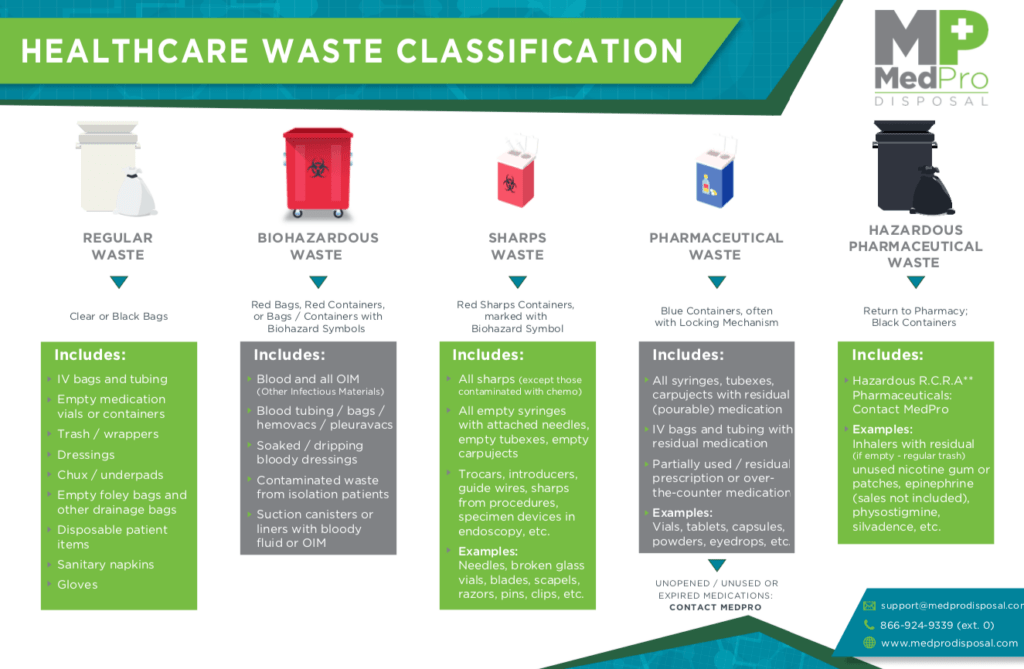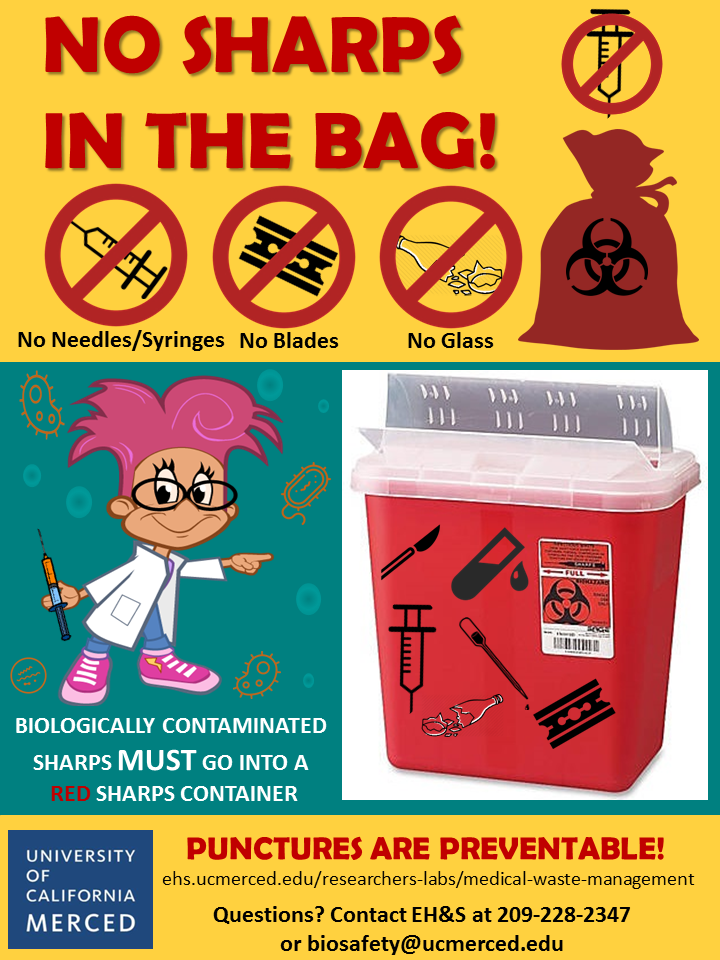Navigating Medical Waste Disposal: Essential Solutions for Health Care Facilities
In the complex landscape of health care operations, the administration of clinical waste is a vital aspect that demands thorough focus. Medical care centers, whether tiny facilities or huge hospitals, are handed over with the obligation of handling, treating, and dealing with a vast selection of clinical waste streams. The complexities involved in navigating with the regulative demands, guaranteeing appropriate waste partition, and implementing risk-free collection and transportation procedures are critical. Comprehending the necessary services that support clinical waste disposal is not simply an issue of conformity yet additionally an essential component in safeguarding public wellness and ecological well-being. The details of this procedure are essential for medical care centers, and the proficiency provided in this realm plays a crucial duty in maintaining the honesty of health care systems.
Regulatory Conformity Support
For medical care facilities, ensuring regulatory conformity support is essential to maintain correct handling and disposal of clinical waste. By partnering with regulatory compliance professionals, healthcare centers can stay up-to-date on progressing laws, alleviate risks linked with inappropriate waste disposal, and eventually add to a more secure and a lot more lasting environment for all.
Waste Partition Guidance

Medical care facilities should supply clear guidelines and training to personnel on just how to segregate waste properly. This includes separating general waste from harmful products such as sharps, infectious waste, drugs, and chemical waste. Color-coded bins, labels, and signage are frequently made use of to aid in waste segregation methods. Routine audits and surveillance of waste segregation processes are vital to determine any type of problems and make needed improvements.
Collection and Transport Providers

Appropriate collection and transport services are essential parts of the clinical garbage disposal procedure in health care facilities. These solutions make sure that dangerous materials are handled securely and in compliance with laws to shield both the setting and public health and wellness. Healthcare centers depend on specialized waste administration business to supply reliable collection and transportation services tailored to their needs.
Clinical waste collection involves setting apart different types of waste at the factor of generation, making use of color-coded bags or containers to identify between basic, harmful, pharmaceutical, and other waste streams. Educated workers should execute this task to stop contamination and make sure correct disposal. Once accumulated, the waste is transported in committed lorries outfitted to take care of unsafe materials safely. These vehicles comply with stringent safety and security standards and adhere to assigned courses to certified therapy centers for disposal with approaches such as landfilling, sanitation, or incineration.
Treatment and Disposal Solutions
In the realm of medical waste disposal for medical care facilities, after the important stage of collection and transportation solutions, the emphasis changes in the direction of applying reliable treatment and disposal remedies. Therapy options commonly include processes such as autoclaving, which uses steam under pressure to sterilize the waste. This method is typically made use of for transmittable waste that has to be provided non-hazardous prior to disposal. One more widespread treatment approach is incineration, where waste undergoes heats in regulated setups to lower its quantity and get rid of microorganisms.
Disposal options encompass the last action in the medical waste administration process. Facilities may select land fill disposal, where dealt with waste is meticulously deposited in assigned locations. Medical Waste Disposal Services. Additionally, healthcare facilities can like it choose to make use of waste-to-energy facilities, which blaze waste to produce electrical power. Reusing and source recovery are likewise gaining grip as lasting disposal choices for sure types of medical waste materials.
Effective treatment and disposal options are paramount in making sure conformity with laws and securing public health and the environment. Health care centers have to very carefully assess and choose proper approaches that straighten with their waste administration goals and sustainability initiatives.
Staff Training and Education

To properly manage medical waste disposal in medical care centers, detailed personnel training and education and learning play a crucial function in ensuring adherence to governing needs and keeping a risk-free atmosphere. Proper training outfits personnel with the expertise and abilities needed to handle various sorts of medical waste, segregate them properly, and package them securely for disposal. By enlightening staff members on the dangers connected with incorrect handling of medical waste, facilities can lower the probability of accidents, contamination, and governing violations.

Final Thought
In verdict, healthcare facilities rely upon important medical waste disposal services to make sure governing conformity, correct waste segregation, risk-free collection and transport, effective treatment and disposal, in addition to staff training and education and learning. These solutions play a vital duty in maintaining the health and wellness of both healthcare employees and the general public, highlighting the importance of proper management of clinical waste in medical care setups.
For medical care centers, making certain here are the findings regulatory conformity assistance is important to preserve proper handling and disposal of medical waste. Waste partition involves categorizing various kinds of clinical waste to guarantee proper handling, treatment, and disposal. This includes dividing general waste from unsafe products such as sharps, transmittable waste, drugs, and chemical waste.Clinical waste collection entails segregating different kinds of waste at the point of generation, making use of color-coded bags or containers to distinguish in between basic, unsafe, pharmaceutical, and other waste streams.In the world of clinical waste disposal for healthcare centers, after the critical phase of collection and transportation solutions, the focus moves towards carrying out reliable treatment and disposal services.